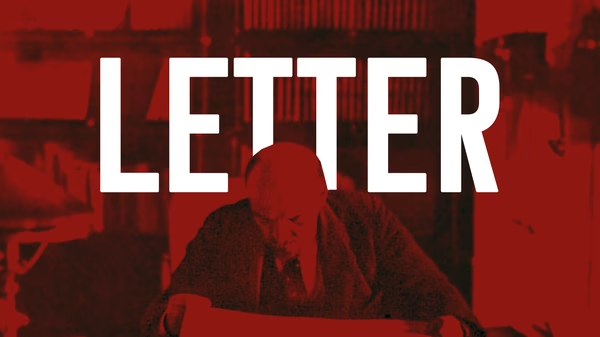With regards to recent discussion about small presses and the recent failure of the non-profit model upon which many boutique presses relied, I feel that much of this discourse remains in a utopian and romantic mode of thought which is an impediment to both creating a proletarian civil society and political action. The original article, while insightful and illuminating on the circumstances of the failures of the non-profit publishing model, in addition to being well written, left me scratching my head for what exactly the author thought should be done about it. The letter by Ali C in response to this essay provides more explicit solutions:
My own chapbook, NIGHT OF THE FIRE, will be released this month (May 2025) by Ethel Zine & Micro Press, where each copy is hand-sewn by the editor—herself funded by a full-time paycheck and sales alone…
Ethel’s model embodies the very alternatives Oleander's essay gestures towards: community-centered distribution that refuses to treat literature as inventory or its makers as cogs in a warehouse. This isn’t a romantic nostalgia; it’s a necessary recalibration against the current implemented system.
Here I must disagree about the appraisal of whether or not this is romantic nostalgia. The fantasy of unalienated labor within capitalism that can save the ethical status of publishing is precisely romantic nostalgia. The workers movement, in a very direct sense, cannot afford this sort of sentimentality. And it's taking exactly the wrong lesson from this debacle. The blow-up from the non-profit failure led to the disruption of supposedly radical left wing publishing outfits, and the non-profit financial model itself meant there was no surplus available for workers to capture in organizing. There is no big bucket of capital just waiting to bail out left wing publishers and distributors, in order for them to work, to reproduce themselves, they must be economical, and have accounts set in order.
If someone can carve out a niche stitching together a book themselves, all the more power to them, but this is hardly a model for left wing publishing as a whole, whose primary responsibility is ideological production and which will be extremely stunted if it adopted this approach wholesale. The point is to avoid the debacles we've experienced by creating a publishing model that works.
I too have recently published a book, titled A Soul of a New Type, which I self published on Amazon. Using Amazon or other large distributors comes with economies of scale and easy access to audiences, so I'm hardly ashamed of doing so. If I had published it with a left wing press, I would have preferred they use these distributors! Let's not delude ourselves that the real labor struggle isn't happening in the heights of industry. Unionizing Amazon is something that could actually capture surplus for workers, and make the gains achieved sustainable. Trying to make a left wing distributor without economies of scale that would make it a feasible enterprise is irresponsible to both workers and publishers.
When it comes to concrete proposals for a new economic model, Ali suggests the following:
If we are to rebuild a truly resilient literary culture, we must ground it in grassroots funding as collective activism and resistance. Ordinary readers pooling small donations to support pamphlets, zines, and hand-bound chapbooks creates a direct bond of accountability and solidarity between writer and community. Such mutual-aid funding insulates artists from shifting policy winds, transforms patrons into partners, and enshrines literature as a shared endeavour rather than a commodity. When each contribution—no matter how modest—represents an act of solidarity, every publication becomes both art and armor against erasure.
This sort of crowdfunding is hardly a new idea. Patreon, and other crowdfunding platforms, are a dime-a-dozen for small publishers and content makers. In short, this is a source of funding already used, and likely to its maximum. I don't know if a sudden spurt of donations is coming, especially as we enter economically uncertain times. In contrast, larger distributors have already mastered print on demand business models which have powered the self-publishing boom of the past fifteen years, and which many small presses rely on today. To abandon this source of demand, which is implicit in this suggestion, would mean radically reducing what small presses can do.
Frankly, I don't care for having some intimate unalienated relationship with whoever is making or publishing some book I want to read. Not the least because I know there's a good chance I wouldn't always agree with the politics of whoever is writing. A proletarian civil society which is diverse and factional will not survive on such a model. I will take a mass produced paperback over a hand crafted zine any day of the week, and I want to recommend those books to people all over the world. I do not think it is an exaggeration to call the fantasy of boutique book distributors a petty bourgeois fantasy, the sort of artisanal, ‘small is beautiful’-type ideology which continues to bedevil the left and blind it to what is really possible.
-Nicolas D Villarreal
Liked it? Take a second to support Cosmonaut on Patreon! At Cosmonaut Magazine we strive to create a culture of open debate and discussion. Please write to us at submissions@cosmonautmag.com if you have any criticism or commentary you would like to have published in our letters section.
